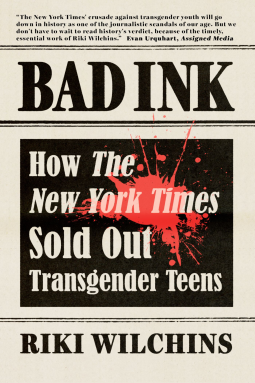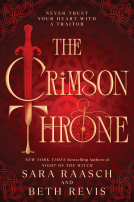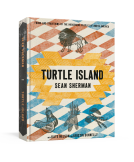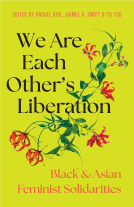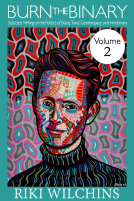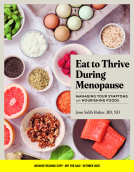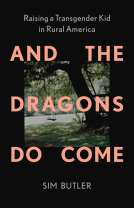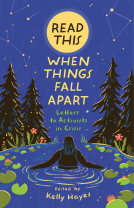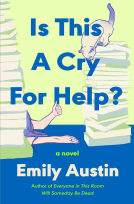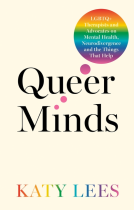Bad Ink
How The New York Times Sold Out Transgender Teens
by Riki Wilchins
You must sign in to see if this title is available for request. Sign In or Register Now
Send NetGalley books directly to your Kindle or Kindle app
1
To read on a Kindle or Kindle app, please add kindle@netgalley.com as an approved email address to receive files in your Amazon account. Click here for step-by-step instructions.
2
Also find your Kindle email address within your Amazon account, and enter it here.
Pub Date Jul 09 2024 | Archive Date Not set
Riverdale Avenue Books | Magnus
Talking about this book? Use #BadInkgenderqueertransmedia #NetGalley. More hashtag tips!
Description
In BAD INK, award-winning trans activist Riki Wilchins, definitively chronicles how and why the nation’s newspaper of record became the leading national voice for attacking transgender kids.
Beginning in 2015 just as A. G. Sulzberger was taking over as Publisher, the New York Times underwent a strange shift: from its long-time support for transgender rights overnight it became the nation’s leading voice attacking transgender kids. In nearly 70,000 words in dozens of articles, it attacked their right to transition, to medical care, to sports participation—even the very idea that they were transgender. It was—as Tom Scocca summed up in Popula— “a plain old-fashioned newspaper crusade,”
But the Times’ crusade wasn’t based on new reporting or fresh medical evidence, but on talking points being promoted by white Christian nationalist organizations devoted to eradicating gay and transgender people. And it was timed just as MAGA politicians introduced over 1,000 bills in scores of states to outlaw every aspect of trans kids’ lives.
It was all apparently part of Sulzberger’s new plan to remake that liberal rag so it could appeal to right-wing readers for the digital age. And unfortunately, it worked.
A Note From the Publisher
Author available for interviews.
Advance Praise
"A much-needed book that only becomes more necessary by the day, Wilchins' BAD INK presents an unflinching, clear-eyed analysis of the role the Times has played in reversing the course of trans rights."
--Harron Walker, VICE
Combining close readings of the Times, robust factchecking, astute observation, and Wilchins’ signature cutting prose, BAD INK is a must-read book for anyone who wants to understand how we got where we are today.
--TJ Billard, PhD
Assoc. Professor, Northwestern Univ. & Director, Center for Applied Transgender Studies
I can't stop reading this book! Bad Ink is the clearest, most coherent dissection of the Times’ decision to trade journalistic integrity for clicks at the expense of trans kids. Every reporter should be tasked with reading this book!
--Kate Sosin, The 19th News
Available Editions
| EDITION | Ebook |
| ISBN | 9781626016811 |
| PRICE | $9.99 (USD) |
| PAGES | 310 |
Links
Available on NetGalley
Featured Reviews
 Reviewer 1481481
Reviewer 1481481
This book is an extremely helpful resource in understanding the history of the good and bad of journalism with a focus on trans people. I wanted for so long to read a book like this after concluding myself that the right wing attention on trans people is alarming. I’m so thankful this book came around the right time for me and gave me infinitely more insight into why that is! Sometimes, it’s a hard read for me because I didn’t grasp things so easily as a cisgender person, but I’m sure that after reading the footnotes and a few rereads I will understand a lot better.
 Reviewer 1256435
Reviewer 1256435
Bad Ink is a scathing takedown of The New York Times and the relentless attack on trans teens that it has spearheaded.
Wilchins goes through article by article and debunks, comments or fact checks claims made by journalists or opinion pieces - where NYT have been slacking from their side or straight up ignoring their own rules for good press ethics to underline their own standpoint. This book covers articles that profile trans women in their day to day life, their reports on ballroom culture, their spread of misinformation in terms of gender affirming care and the dealings behind the scenes (which include replacing a trans employee with someone vocally anti-trans, and making another feel they have no choice but to leave the workplace because they will get punished for speaking out). All in the name of clicks and engagement.
Wilchins does a good job of highlighting how the change in how people consume news has led to a change in strategy for papers, and a reliance on clickbait or articles they know will gain traction. This, largely, goes at the expense of trans youth. The list of sources Wilchins uses to back up her claims are extensive and the book is well written, well researched and compassionate whilst still having some snark and humour.
4/5 Stars
Good read on the rise of transphobic news coverage in the New York and the strategies transphobic groups in general will use. Also does a good job debunking the common claims or statistics these groups will use when the rights of trans people.
Looks at various claims made by articles from the NYT (trans people in sports, the "risks" of HRT and transitioning for trans kids, ect) and while it doesn't go super in depth on any one topic and doesn't explore every single article from the NYT (the author admits in the book doing so will make this book way too long) does a great job covering the topics it does and provides a good overview of the common tactics transphobes will use for their arguments and debunking them.
Thank you Riki Wilchins and Riverdale Avenue for this eARC!
This book is a powerful, well-researched critique of journalism’s treatment of trans people, with a sharp focus on The New York Times and its role in promoting harmful narratives about trans youth. Wilchin's meticulously analyzes specific articles, exposing ethical lapses, misinformation, and internal newsroom dynamics that have contributed to a damaging media environment—all in the pursuit of clicks. Though some parts can be challenging for cis readers, the writing is insightful, compassionate, and supported by extensive sources. It’s an essential and timely read for anyone seeking to understand how media shapes public perception of trans lives.
This was my first ever nonfiction book and when I saw this book listed I knew I had to read it and digest it thoroughly. I have people that I care about immensely that are transgender and have had plenty of different experiences. But one thing they all have in common is the way others want to make choices for them. Rikki did a wonderful job debunking all of the stigma, negativity, and biased articles/arguments that the ‘Times’ has been pushing for years. I truly didn’t realize how much time and energy the ‘Times’ has been putting in on their anti-trans agenda until I read this book. There was so much information and research and the ‘Times’ should take a page from Rikki’s book and go back to university and relearn how to be journalists again.
*I received a free ARC from NetGalley*
Bad Ink by Riki Wilchins is an interesting look at how The New York Times went from backing trans teens to pushing harmful narratives. It’s well-researched, eye-opening, and calls out how politics have skewed the paper’s coverage. A powerful read that stands up for trans youth and the truth.
Readers who liked this book also liked:
Kiri Callaghan
General Fiction (Adult), Mystery & Thrillers, Sci Fi & Fantasy
Sean Sherman; Kate Nelson; Kristin Donnelly
Cooking, Food & Wine, History, Multicultural Interest
Rachel Kuo, Jaimee A. Swift, and TD Tso
Multicultural Interest, Nonfiction (Adult), Politics & Current Affairs
Kelly Hayes, Editor
Essays & Collections, LGBTQIAP+, Politics & Current Affairs
